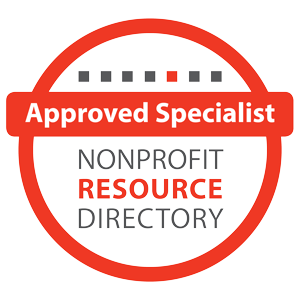Nonprofit Grant Writing: An Easy 3-Phase Strategy to Success
START MANAGING THE 3 PHASES
Under the best circumstances, grant writing can be a complicated and mysterious undertaking. It’s also an essential undertaking for most nonprofits. So how do organizations ensure they’re putting their best foot forward with every proposal they submit? They do it by creating a reliable and repeatable process that effectively manages the three phases of submitting your grant, or as we call them, the before, during, and after.
BEFORE: FIND OUT IF YOUR GOOD IDEA IS ACTUALLY GRANT WORTHY
There are plenty of obviously bad ideas out there which are usually pretty easy to spot. You’ll also find plenty of bad ideas masquerading as good ones. Ideally, your good idea really is a good idea that deserves to be considered against other good ideas; but unfortunately that’s probably not enough. To really succeed, your good idea also needs the support of a good project. And a good project depends on good planning. So before you start writing your grant proposal, make sure your project is well defined. Because when it really comes down to it, good grant writing requires good project planning.
This all begins by defining who you are as an organization. What is your mission, vision, and values? Are you eligible for nonprofit status? What history does your group have of serving the community? Next, start defining your project. Ask yourself, why this project now? Who does it serve? Can we demonstrate a real need? You should also establish measurable outcomes and goals to determine if your efforts are bearing fruit. Consider how you’ll determine the best metrics to track and how you’ll gather that information. There’s also the important day-to-day factors to consider. What is your operating budget? How many paid staff will be necessary to make it all work? And perhaps most importantly, ask yourself if this project is sustainable. Or more specifically, how will it be funded years down the road?
These aren’t easy questions but as you work to find the answers, you’ll see your organization take shape before your very eyes. And once your organization is fully formed, you’ll be better positioned to share your vision with those who can help you realize it.
DURING: PRIORITIZING, PREPARING AND SUBMITTING MULTIPLE PROPOSALS
Prioritizing: Getting your ducks in a row
So who do you contact first? Start with past founders or others you already have relationships with. Once those contacts a fully mined, then you can begin searching for new partners. The Fort Vancouver Library’s foundation center is a great resource for searching these out. As you’re looking, keep these items in mind:
- Consider Fit: You’ll want to prioritize foundations that align with your mission or whose criteria you meet most fully. In other words, put your best efforts into the areas where you’ll likely get the best returns.
- Stay Organized: It can be easy to miss important items or dates when you’re juggling multiple proposals but you must find a way to master it all. Use a system that tracks due dates and assigns priority based on due date as well as fit.
- Build Relationships: When it’s possible – or appropriate – build relationships within the foundation’s you’re pursuing. The process will become much less mysterious if you have someone you can call with questions.
- Stay Active: Keep circling back to foundations you’re interested in. Deadlines and guidelines can change often.
Preparing: Pulling it all Together
Now that you’ve developed a list of target foundations and due dates, you can begin writing your proposals. Here are a few tips that will help you keep it all under control:
- Don’t recreate the wheel. Make one master you can pull information from.
- Answer questions directly, concisely, and clearly.
- Tell a great story using specific examples.
- Write to your audience, which is likely a volunteer review committee.
- Pay attention to formatting: 2 pages, 12 point font with 1 inch margins. And learn to embrace word limits.
- Have at least one other person proofread your proposal.
- If you have multiple drafts, date them all. There’s nothing worse that submitting an outdated version of your proposal.
Submitting: Let it Take Flight
Your proposals are finalized and it’s time to submit. Don’t forget to stay organized during this last stage.
- Avoid submitting the day your proposal is due. Your job is to manage the submission, which includes information gathered from other people. If it’s due on the 10th, tell them the 5th. Give yourself some time!
- Get confirmation of your submission. Make a call if you need to.
- Submit PDF’s when possible.
- Title your proposal clearly. For example: Letter_of_Inquiry_XYZ Org_8.23.16.PDF. Also use headers, footers, and page numbers in your document.
- Keep records of your final submittal – both paper and electronic.
- Keep your tracking document updated.
In a well-functioning system, this process will repeat itself time-after-time during the year. And the better you are at managing all the moving parts involved in these three stages, the more proposals you’ll send out every year.
AFTER: WHAT TO DO AFTER FUNDING COME THROUGH (AND WHAT TO DO IF IT DOESN’T)
It’s also the grant manager’s responsibility to track deadlines for reporting. Every foundation will have different expectations here, so be sure you know what each one needs and don’t forget to communicate that information with the staff – especially with the person charged with tracking the measurables. Giving the foundations the feedback they need in a timely fashion is another key component of relationship building.
Of course it’s also possible that some of your grant proposals will be denied. Don’t lose heart! Sometimes a no just means “not now.” In these situations, it’s okay to ask the foundation for feedback. If taken seriously, this process can provide valuable insight that will make your next grant request that much stronger. And most importantly, don’t take it personally. Even in rejection you have an opportunity to continue building a relationship that could prove valuable at some unseen point in the future.
YOU CAN DO IT
If you’d like to talk more about managing your grant writing efforts or any other needs your organization might have, we’d love to hear from you. You can contact us at (360) 750-3825 or by email at pawestby@westbyassociates.com. We’d love to chat!







